MercoPress. South Atlantic News Agency
Economy
-
Thursday, August 7th 2025 - 09:54 UTC
Brazil turns to WTO to seek remedy to US tariffs

Brazil formally challenged recent US tariffs by requesting consultations on Wednesday with the World Trade Organization (WTO). The tariffs, which impose up to a 50% surcharge on a wide range of Brazilian products, were implemented by two executive orders from President Donald Trump.
-
Thursday, August 7th 2025 - 09:40 UTC
La Plata-Montevideo connection operational

A new weekly shuttle called the “3S Shuttle Service Solution” has been launched, connecting the port of La Plata in the province of Buenos Aires with Montevideo, Uruguay. This service is a collaboration between TecPlata and Independencia Shipping Lines. It aims to provide more competitive and efficient alternatives for trade between the two countries.
-
Thursday, August 7th 2025 - 07:37 UTC
Argentine opposition defies Milei, approves increased funding for public universities

Argentina’s Chamber of Deputies approved a bill on Wednesday to raise funding for public universities, with 158 votes in favor and 75 against. The measure, backed by the Peronist bloc and other opposition parties, marks a new legislative defeat for far-right President Javier Milei, who vetoed a similar initiative last year.
-
Wednesday, August 6th 2025 - 10:15 UTC
Uruguay's YoY inflation continues to fall
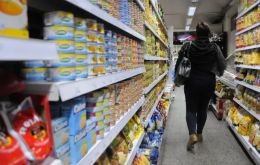
According to the National Institute of Statistics (INE) report published Tuesday in Montevideo, Uruguay's interannual inflation rate in July 2025 was 4.53%, a slight decrease from 4.59% in June. This marks the 26th consecutive month that inflation has remained within the Central Bank's target range of 3% to 6%.
-
Tuesday, August 5th 2025 - 12:40 UTC
Japanese team audits Paraguayan beef production
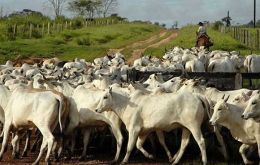
A team from Japan's Ministry of Agriculture, Forestry, and Fisheries is in Paraguay to audit the South American country's meat production until August 8, with visits to various facilities and regional offices.
-
Tuesday, August 5th 2025 - 10:00 UTC
IMF money arrives in Buenos Aires, boosting reserves

Argentina has received a US$2 billion disbursement from the International Monetary Fund (IMF), a move that has boosted the country's international reserves and provided a temporary reprieve from exchange rate volatility. The funds, part of an agreement reached in April, have raised the Central Bank's reserves to over US$43 billion, the highest since early 2023.
-
Sunday, August 3rd 2025 - 11:04 UTC
Falklands, invitation to celebrate launching of the new bank note collection
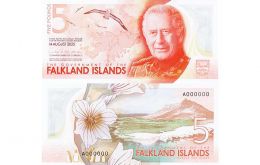
The Falkland Islands Government invites the public to an event celebrating the launch of the new banknote collection for the Falkland Islands. The new banknotes enter circulation on Falklands Day (14th August) and will be launched at a reception on Wednesday, 13th August, at the Historic Dockyard Museum from 6pm.
-
Friday, August 1st 2025 - 09:40 UTC
IMF Board approves US$2 bn disbursement to Argentina
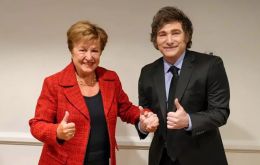
The International Monetary Fund (IMF) has approved the first review of its agreement with Argentina, authorizing a disbursement of US$2 billion. The decision comes days after the IMF projected a 5.5% growth for the country.
-
Friday, August 1st 2025 - 09:22 UTC
Trump announces 35% tariffs on Canadian products
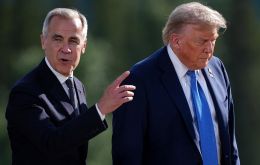
US President Donald Trump has raised the tariff rate on Canadian imports from 25% to 35%, effective August 1. The White House justified the increase by stating that Canada has not done enough to “arrest, seize, detain or otherwise intercept... traffickers, criminals at large, and illicit drugs.” Trump also announced Thursday a 90-day moratorium with Mexico after a call with President Claudia Sheinbaum, keeping 25% tariff rates in place.
-
Thursday, July 31st 2025 - 21:26 UTC
Transformed St Helena veteran vessel will be visiting Falklands in 2026/2027

Falkland Islands residents, originally from the island of St. Helena, most probably during the next year, might see the revival of a vessel that for many decades was the only link with South Africa. However, this time refurbished, with different colors and as an exclusive boutique, at most 98 passengers, RMS St Helena, will be sailing the roaring forties and targeting Antarctica expeditions.
